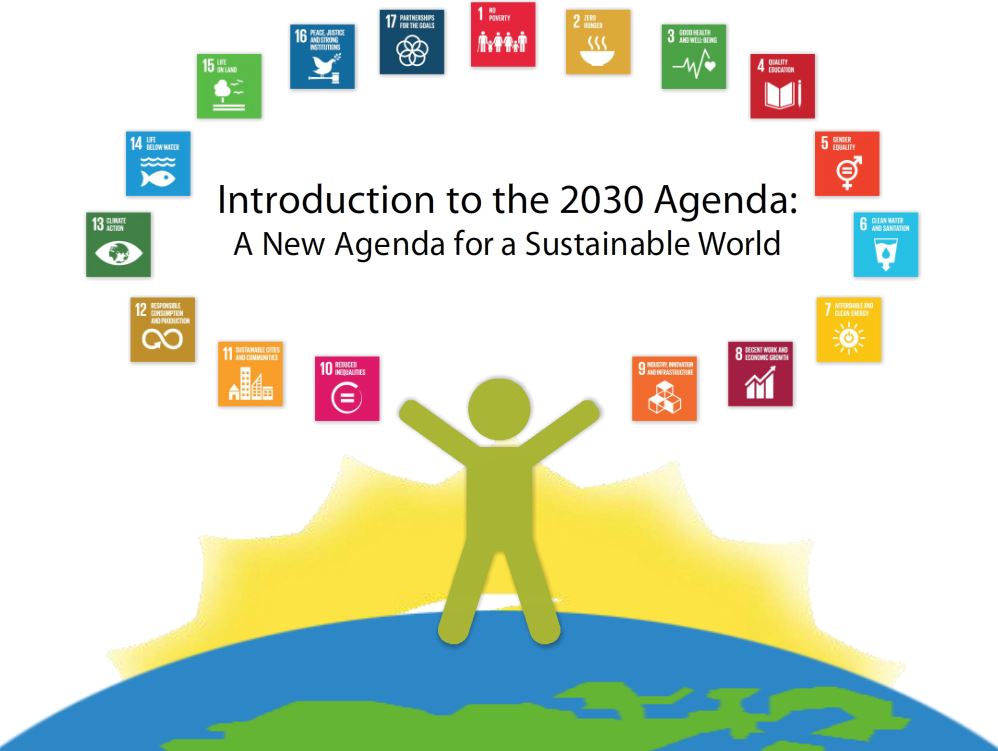Why is 2030 important for sustainability?

Sustainability has become a pressing issue in today's world, as the negative impacts of human activities on the environment have become increasingly evident. To address this global concern, the United Nations launched the Sustainable Development Goals (SDGs) in 2015, with the target year set for 2030. In this article, we will explore why 2030 is important for sustainability and the progress made towards achieving these goals so far.
The Importance of Setting Sustainable Development Goals
Setting sustainable development goals is crucial to ensure a better future for our planet and future generations. These goals provide a clear roadmap for governments, organizations, and individuals to take collective action towards addressing pressing environmental, social, and economic challenges. By setting specific targets, it becomes easier to track progress and hold stakeholders accountable for their actions.
2030 Agenda for Sustainable Development
The 2030 Agenda for Sustainable Development, adopted by all United Nations Member States in 2015, is a comprehensive plan of action for people, planet, and prosperity. This agenda encompasses 17 SDGs, which aim to end poverty, protect the planet, and ensure prosperity for all by 2030. The goals cover a wide range of issues, including climate change, gender equality, clean energy, and sustainable cities.
Key Sustainable Development Goals for 2030
- Eradicate poverty in all its forms and dimensions
- Ensure healthy lives and promote well-being for all at all ages
- Promote inclusive and sustainable economic growth, employment, and decent work for all
- Take urgent action to combat climate change and its impacts
- Promote peaceful and inclusive societies for sustainable development
- Protect, restore, and promote sustainable use of terrestrial ecosystems
Challenges in Achieving Sustainability by 2030
While the SDGs provide a framework for achieving sustainability, there are several challenges that hinder progress. These challenges include inadequate funding, limited access to resources, political and social barriers, and lack of awareness and education. Additionally, addressing complex issues such as climate change and poverty requires global cooperation and coordinated efforts from all stakeholders.
Progress and Achievements so far
Since the adoption of the SDGs, significant progress has been made towards achieving sustainability by 2030. Many countries have incorporated the goals into their national strategies and policies, leading to improvements in various areas such as renewable energy adoption, poverty reduction, and access to education. However, there is still a long way to go, and accelerated efforts are needed to meet the targets.
Future Outlook and Opportunities
The year 2030 serves as a deadline for countries to achieve the SDGs, but it also presents opportunities for innovation, collaboration, and transformative change. Advancements in technology, increased awareness, and changing social norms provide a favorable environment for sustainable development. By harnessing these opportunities, we can create a more sustainable and inclusive future for all.
Conclusion
The year 2030 holds immense significance in the realm of sustainability. It is a target year for achieving the Sustainable Development Goals, which aim to address pressing global challenges and create a more sustainable future. While progress has been made, challenges still exist, and it is crucial for all stakeholders to work together to accelerate efforts towards achieving these goals.
Frequently Asked Questions
1. What is the significance of the year 2030 in sustainability?
The year 2030 is significant in sustainability as it represents the target year for achieving the Sustainable Development Goals (SDGs) adopted by the United Nations. It is a deadline for countries and organizations to take concrete actions towards addressing environmental, social, and economic challenges.
The SDGs are a set of 17 goals adopted by all United Nations Member States, with the target year set for 2030. These goals provide a roadmap for sustainable development, covering various aspects such as poverty eradication, climate action, and gender equality. The year 2030 serves as a deadline for achieving these goals.
3. What are some of the key challenges in achieving sustainability by 2030?
Some of the key challenges in achieving sustainability by 2030 include inadequate funding, limited access to resources, political and social barriers, and lack of awareness and education. Additionally, addressing complex issues like climate change and poverty requires global cooperation and coordinated efforts from all stakeholders.
4. What progress has been made towards achieving the SDGs so far?
Since the adoption of the SDGs, significant progress has been made in various areas such as renewable energy adoption, poverty reduction, and access to education. Many countries have incorporated the goals into their national strategies and policies. However, more efforts are needed to meet the targets by 2030.

Leave a Reply